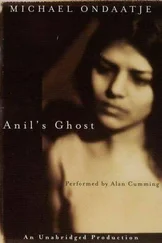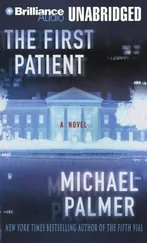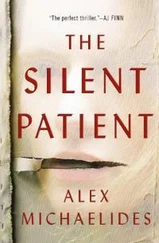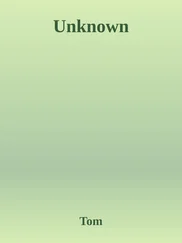Michael Ondaatje - The English Patient
Здесь есть возможность читать онлайн «Michael Ondaatje - The English Patient» весь текст электронной книги совершенно бесплатно (целиком полную версию без сокращений). В некоторых случаях можно слушать аудио, скачать через торрент в формате fb2 и присутствует краткое содержание. Жанр: Старинная литература, на русском языке. Описание произведения, (предисловие) а так же отзывы посетителей доступны на портале библиотеки ЛибКат.
- Название:The English Patient
- Автор:
- Жанр:
- Год:неизвестен
- ISBN:нет данных
- Рейтинг книги:4 / 5. Голосов: 1
-
Избранное:Добавить в избранное
- Отзывы:
-
Ваша оценка:
- 80
- 1
- 2
- 3
- 4
- 5
The English Patient: краткое содержание, описание и аннотация
Предлагаем к чтению аннотацию, описание, краткое содержание или предисловие (зависит от того, что написал сам автор книги «The English Patient»). Если вы не нашли необходимую информацию о книге — напишите в комментариях, мы постараемся отыскать её.
The English Patient — читать онлайн бесплатно полную книгу (весь текст) целиком
Ниже представлен текст книги, разбитый по страницам. Система сохранения места последней прочитанной страницы, позволяет с удобством читать онлайн бесплатно книгу «The English Patient», без необходимости каждый раз заново искать на чём Вы остановились. Поставьте закладку, и сможете в любой момент перейти на страницу, на которой закончили чтение.
Интервал:
Закладка:
Four hours later, he runs over the grass in his socks, his shadow curled under him, painted by the moon. He stops at the gravel path and moves slowly over the grit. He looks up at the Villa Cosima, at the square moons of window. A palace of war-women.
A car beam—like something sprayed out of a hose—lights up the room he is in, and he pauses once again in mid-step, seeing that same woman’s eyes on him, a man moving on top of her, his fingers in her blonde hair. And she has seen, he knows, even though now he is naked, the same man she photographed earlier in the crowded party, for by accident he stands the same way now, half turned in surprise at the light that reveals his body in the darkness. The car lights sweep up into a corner of the room and disappear.
Then there is blackness. He doesn’t know whether to move, whether she will whisper to the man fucking her about the other person in the room. A naked thief. A naked assassin. Should he move—his hands out to break a neck—towards the couple on the bed?
He hears the man’s lovemaking continue, hears the silence of the woman—no whisper—hears her thinking, her eyes aimed towards him in the darkness. The word should be think-ering . Caravaggio’s mind slips into this consideration, another syllable to suggest collecting a thought as one tinkers with a half-completed bicycle. Words are tricky things, a friend of his has told him, they’re much more tricky than violins. His mind recalls the woman’s blonde hair, the black ribbon in it.
He hears the car turning and waits for another moment of light. The face that emerges out of the dark is still an arrow upon him. The light moves from her face down onto the body of the general, over the carpet, and then touches and slides over Caravaggio once more. He can no longer see her. He shakes his head, then mimes the cutting of his throat. The camera is in his hands for her to understand. Then he is in darkness again. He hears a moan of pleasure now from her towards her lover, and he is aware it is her agreement with him. No words, no hint of irony, just a contract with him, the morse of understanding, so he knows he can now move safely to the verandah and drop out into the night.
Finding her room had been more difficult. He had entered the villa and silently passed the half-lit seventeenth-century murals along the corridors. Somewhere there were bedrooms like dark pockets in a gold suit. The only way he could get past guards was to be revealed as an innocent. He had stripped completely and left his clothes in a flower bed.
He ambles naked up the stairs to the second floor, where the guards are, bending down to laugh at some privacy, so his face is almost at his hip, nudging the guards about his evening’s invitation, al fresco , was that it? Or seduction a cappella ?
One long hall on the third floor. A guard by the stair and one at the far end twenty yards away, too many yards away. So a long theatrical walk, and Caravaggio now having to perform it, watched with quiet suspicion and scornfully by the two bookended sentries, the ass-and-cock walk, pausing at a section of mural to peer at a painted donkey in a grove. He leans his head on the wall, almost falling asleep, then walks again, stumbles and immediately pulls himself together into a military gait. His stray left hand waves to the ceiling of cherubs bum-naked as he is, a salute from a thief, a brief waltz while the mural scene drifts haphazardly past him, castles, black- and-white duomos, uplifted saints on this Tuesday during the war, in order to save his disguise and his life. Caravaggio is out on the tiles looking for a photograph of himself.
He pats his bare chest as if looking for his pass, grabs his penis and pretends to use it as a key to let him into the room that is being guarded. Laughing, he staggers back, peeved at his woeful failure, and slips into the next room humming.
He opens the window and steps out onto the verandah. A dark, beautiful night. Then he climbs off it and swings onto the verandah one level below. Only now can he enter the room of Anna and her general. Nothing more than a perfume in their midst. Printless foot. Shadowless. The story he told someone’s child years ago about the person who searched for his shadow—as he is now looking for this image of himself on a piece of film.
In the room he is immediately aware of the beginnings of sexual movement. His hands within her clothing thrown onto chair backs, dropped upon the floor. He lies down and rolls across the carpet in order to feel anything hard like a camera, touching the skin of the room. He rolls in silence in the shape of fans, finding nothing. There is not even a grain of light.
He gets to his feet and sways his arms out slowly, touches a breast of marble. His hand moves along a stone hand—he understands the way the woman thinks now—off which the camera hangs with its sling. Then he hears the vehicle and simultaneously as he turns is seen by the woman in the sudden spray of car light.
Caravaggio watches Hana, who sits across from him looking into his eyes, trying to read him, trying to figure the flow of thought the way his wife used to do. He watches her sniffing him out, searching for the trace. He buries it and looks back at her, knowing his eyes are faultless, clear as any river, unimpeachable as a landscape. People, he knows, get lost in them, and he is able to hide well. But the girl watches him quizzically, tilting her head in a question as a dog would when spoken to in a tone or pitch that is not human. She sits across from him in front of the dark, blood-red walls, whose colour he doesn’t like, and in her black hair and with that look, slim, tanned olive from all the light in this country, she reminds him of his wife.
Nowadays he doesn’t think of his wife, though he knows he can turn around and evoke every move of her, describe any aspect of her, the weight of her wrist on his heart during the night.
He sits with his hands below the table, watching the girl eat. He still prefers to eat alone, though he always sits with Hana during meals. Vanity, he thinks. Mortal vanity. She has seen him from a window eating with his hands as he sits on one of the thirty-six steps by the chapel, not a fork or a knife in sight, as if he were learning to eat like someone from the East. In his greying stubble-beard, in his dark jacket, she sees the Italian finally in him. She notices this more and more.
He watches her darkness against the brown- and-red walls, her skin, her cropped dark hair. He had known her and her father in Toronto before the war. Then he had been a thief, a married man, slipped through his chosen world with a lazy confidence, brilliant in deceit against the rich, or charm towards his wife Giannetta or with this young daughter of his friend.
But now there is hardly a world around them and they are forced back on themselves. During these days in the hill town near Florence, indoors during the days of rain, daydreaming in the one soft chair in the kitchen or on the bed or on the roof, he has no plots to set in motion, is interested only in Hana. And it seems she has chained herself to the dying man upstairs.
During meals he sits opposite this girl and watches her eat.
Half a year earlier, from a window at the end of the long hall in Santa Chiara Hospital in Pisa, Hana had been able to see a white lion. It stood alone on top of the battlements, linked by colour to the white marble of the Duomo and the Camposanto, though its roughness and naive form seemed part of another era. Like some gift from the past that had to be accepted. Yet she accepted it most of all among the things surrounding this hospital. At midnight she would look through the window and know it stood within the curfew blackout and that it would emerge like her into the dawn shift. She would look up at five or five-thirty and then at six to see its silhouette and growing detail. Every night it was her sentinel while she moved among patients. Even through the shelling the army had left it there, much more concerned about the rest of the fabulous compound—with its mad logic of a tower leaning like a person in shell shock.
Читать дальшеИнтервал:
Закладка:
Похожие книги на «The English Patient»
Представляем Вашему вниманию похожие книги на «The English Patient» списком для выбора. Мы отобрали схожую по названию и смыслу литературу в надежде предоставить читателям больше вариантов отыскать новые, интересные, ещё непрочитанные произведения.
Обсуждение, отзывы о книге «The English Patient» и просто собственные мнения читателей. Оставьте ваши комментарии, напишите, что Вы думаете о произведении, его смысле или главных героях. Укажите что конкретно понравилось, а что нет, и почему Вы так считаете.












